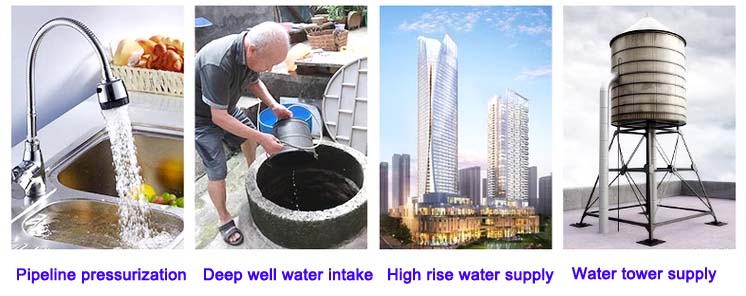Tamil
- Afrikaans
- Albanian
- Amharic
- Arabic
- Armenian
- Azerbaijani
- Basque
- Belarusian
- Bengali
- Bosnian
- Bulgarian
- Catalan
- Cebuano
- Corsican
- Croatian
- Czech
- Danish
- Dutch
- English
- Esperanto
- Estonian
- Finnish
- French
- Frisian
- Galician
- Georgian
- German
- Greek
- Gujarati
- Haitian Creole
- hausa
- hawaiian
- Hebrew
- Hindi
- Miao
- Hungarian
- Icelandic
- igbo
- Indonesian
- irish
- Italian
- Japanese
- Javanese
- Kannada
- kazakh
- Khmer
- Rwandese
- Korean
- Kurdish
- Kyrgyz
- Lao
- Latin
- Latvian
- Lithuanian
- Luxembourgish
- Macedonian
- Malgashi
- Malay
- Malayalam
- Maltese
- Maori
- Marathi
- Mongolian
- Myanmar
- Nepali
- Norwegian
- Norwegian
- Occitan
- Pashto
- Persian
- Polish
- Portuguese
- Punjabi
- Romanian
- Russian
- Samoan
- Scottish Gaelic
- Serbian
- Sesotho
- Shona
- Sindhi
- Sinhala
- Slovak
- Slovenian
- Somali
- Spanish
- Sundanese
- Swahili
- Swedish
- Tagalog
- Tajik
- Tamil
- Tatar
- Telugu
- Thai
- Turkish
- Turkmen
- Ukrainian
- Urdu
- Uighur
- Uzbek
- Vietnamese
- Welsh
- Bantu
- Yiddish
- Yoruba
- Zulu
Telephone: +86 13120555503
Email: frank@cypump.com
அக் . 02, 2024 02:21 Back to list
Efficient Pump Solutions for Managing Sewage and Wastewater Treatment Systems
Sewage Effluent Pumps An Essential Component of Wastewater Management
Sewage effluent pumps play a crucial role in the management of wastewater systems. They are specifically designed to handle and transport wastewater, ensuring that it is effectively moved from its source to treatment facilities. As urban populations grow and infrastructure ages, the importance of these pumps becomes increasingly clear.
Understanding Sewage Effluent Pumps
Sewage effluent pumps are submersible pumps, meaning they operate while submerged in the liquid they are pumping. This design allows them to effectively manage the challenging characteristics of sewage, which often contains solids and other debris. Unlike standard water pumps, sewage pumps are built to handle a variety of waste materials, making them essential for both residential and municipal applications.
Types of Sewage Effluent Pumps
There are several types of sewage effluent pumps available on the market, each suited for different applications. The two main categories are grinder pumps and effluent pumps. Grinder pumps are equipped with sharp blades that grind up solids into smaller pieces, allowing for easier transportation through pipes. They are ideal for residential systems that require sewage to be pumped long distances or uphill. On the other hand, effluent pumps are typically used in septic systems and are designed to handle wastewater that is relatively free of solids.
Applications of Sewage Effluent Pumps
sewage effluent pumps

These pumps are utilized in a range of applications, from residential homes to commercial and municipal wastewater treatment plants. In residential settings, sewage effluent pumps are often used in basement bathrooms or laundry rooms that are below the main sewer line. They ensure that wastewater is pumped upwards, allowing it to flow into the main municipal sewer system. For commercial properties, these pumps manage a larger volume of wastewater, addressing the needs of restaurants, hotels, and industries.
Municipal sewage systems rely heavily on effluent pumps to transport waste from residential and commercial areas to treatment facilities. With the increasing volume of wastewater generated by growing populations, the efficiency and reliability of these pumps play a key role in maintaining public health and environmental standards.
Maintenance and Efficiency
Regular maintenance of sewage effluent pumps is essential to ensure their longevity and efficiency. Common maintenance practices include inspecting the pump for any signs of wear and tear, cleaning the impeller to remove debris, and checking electrical connections. Neglecting maintenance can lead to pump failure, which may result in costly repairs and environmental hazards.
Additionally, modern sewage effluent pumps are engineered to be energy-efficient, minimizing operational costs and environmental impact. Many pumps now come with advanced monitoring systems that provide real-time data on pump performance, allowing for proactive maintenance and improved system management.
Conclusion
Sewage effluent pumps are vital for the proper management of wastewater, contributing to the safety and cleanliness of urban environments. As technology continues to advance, these pumps will become even more efficient and effective in handling the increasing amounts of sewage produced in our cities. Investing in high-quality sewage effluent pumps and adhering to rigorous maintenance protocols will ensure a robust wastewater management system, ultimately protecting public health and the environment.
-
ISG Series Vertical Pipeline Pump - Chi Yuan Pumps Co., LTD.|High Efficiency, Low Noise, Durable
NewsAug.02,2025
-
ISG Series Vertical Pipeline Pump - Chi Yuan Pumps | High Efficiency, Low Noise
NewsAug.02,2025
-
ISG Series Vertical Pipeline Pump- Chi Yuan Pumps Co., LTD.|High Efficiency&Compact Design
NewsAug.02,2025
-
Heavy-Duty Mining Sludge Pumps - Wear-Resistant Slurry Handling
NewsAug.02,2025
-
Horizontal Split Case Pump with GPT-4 Turbo | High Efficiency
NewsAug.01,2025
-
ISG Series Pipeline Pump - Chi Yuan Pumps | High Efficiency, Durable Design
NewsAug.01,2025










